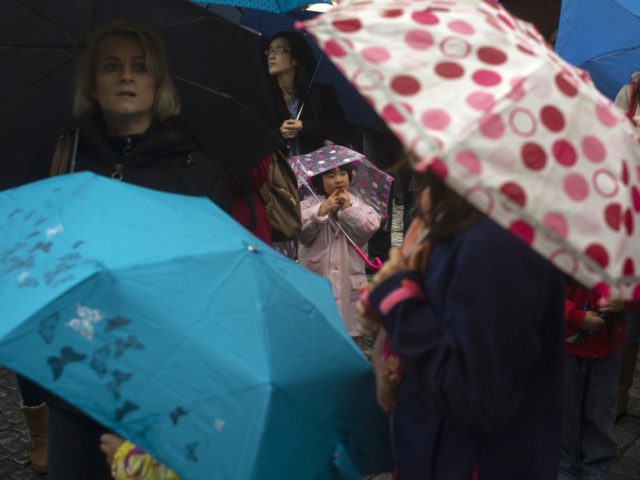Elba Island has launched an ambitious program to combat inaccurate weather forecasts by reimbursing tourists’ hotel fees if it rains for more than two hours on any given day.
According to local officials, Elba tourism suffers from the “fake news” of weather forecasts calling for rain that never materializes, which needlessly keeps people from visiting the beautiful and historic island, best known as Napoleon’s place of exile from 1814-15.
“Tour operators tell us that weather forecasts of a rainy weekend can lead to a drop in bookings and attendance of over 20 percent,” said Claudio Della Lucia, tourism coordinator for the island.
“In the last five years, in April, May, we had only two days with more than two hours of rain during the daytime,” Mr. Della Lucia said.
The pilot project called #ElbaNoRain is running until the end of May and will likely be renewed again next September. The tourism office, which sponsored the idea with the backing of local municipalities and hoteliers, said that misleading weather forecasts have long been creating serious problems by keeping prospective vacationers away.
According to the island’s official tourism site, Elba is so sure of its good weather it is willing to guarantee it. If it rains for more than two hours in the period between 10:00am and 8:00pm, the hotel stay is free, it promises.
A number of climate scientists have noted that meteorologists’ notoriously inaccurate weather predictions make it difficult to trust forecasts of what weather will look like 50 or 100 years from now as a result of “climate change.”
As one climate scientist wrote: “Climate models are just more complex/chaotic weather models, which have a theoretical maximum predictive ability of just 10 days into the future. Predicting climate decades or even just years into the future is a lie, albeit a useful one for publication and funding.”
Last year, the Wall Street Journal published an essay ridiculing apocalyptic scenarios of an overheated future with disastrous impact on the human population as the product of “laughably bad economics.”
One study, wrote Oren Cass, senior fellow at the Manhattan Institute, projected a drop of 20 percent in world GDP by the year 2100, but gigantic economic growth for countries like Iceland and Mongolia.
Iceland would purportedly reach an annual per capita income of $1.5 million by 2100, a conclusion that Cass found to be “as preposterous as it is stunning.”
The results of such studies — like much of climate science itself — come from computer models that attempt to extrapolate future costs from present realities that may or may not have anything to do with the state of things 100 years from now.
By looking at actual correlations between weather conditions and things like mortality and economic growth, economists try to translate temperature forecasts into human impacts. The resulting doomsday predictions of a dystopian climate future come from “absurd estimates,” Cass wrote.
If predicting next week’s weather is so subject to human fallibility, predicting the next century’s weather is even more unreliable, which makes one wonder why climate alarmists want to radically alter human behavior based on such profound uncertainty.
If Al Gore and his band of climate doomsday prophets were really sure of their apocalyptic predictions, maybe they would take a page from Elba’s book and offer a guaranteed taxpayer refund for all the money spent trying to avert a catastrophe that is never going to happen.

COMMENTS
Please let us know if you're having issues with commenting.